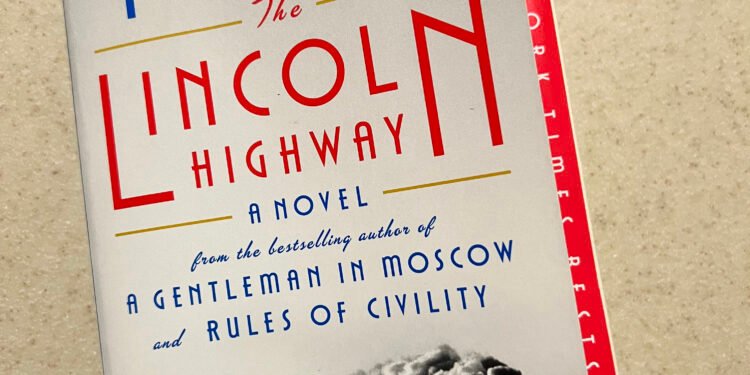(This column first appeared in the November print edition of the Hendersonian.)
“I think you would like this book,” my wife tells me now and then.
She was right with the Harry Potter series, which we enjoyed so much that when J.K. Rowling would publish a new installment, we would buy two copies so one of us didn’t have to wait on the other to finish.
She was definitely right when we were in the O’Hare International Airport and I had nothing to read, and she spied “A Man Called Ove” by the Swedish novelist Fredrik Backman and mentioned that a friend had read and enjoyed it very much. I was hooked less than five pages in.
I’ve since read other brilliantly translated Backman novels: “My Grandmother Asked Me to Tell You She’s Sorry,” the unlikely marvelous “Britt-Marie Was Here” and “Beartown,” which isn’t for the squeamish.
I don’t always follow up on my wife’s book suggestions, and I wasn’t sure I would when she said “I think you would like this book” about “A Gentleman in Moscow” by Amor Towles.
Not long afterward, we were on a road trip and Donna brought along “Table for Two,” an audiobook version of Towles’ short stories.
I was utterly astonished and enchanted. Not only is Towles a marvelous writer, but he has a seemingly endless imagination. One short story, “The Line,” is about an amiable Russian peasant during the Russian Revolution of the late 1910s who finds himself being asked over and over to stand in one of Moscow’s endless number of long lines for household necessities, and the surprises that brings.
Another concerns an aspiring young novelist who finds himself lured into forging the signatures of authors of rare books. Or an old man who is caught illegally recording concerts at Carnegie Hall. Or a wife suspicious about her husband slipping away from their New York apartment, only to learn that his secret is that he likes to roller-skate in Central Park to the sound of disco music with a group of other men.
What ultimately happens with each of these characters, and those around them, is nearly “Twilight Zone” in nature.
I was instantly hooked on Amor Towles. As soon as we got home, I tucked into “A Gentlemen in Moscow.”
I wasn’t immediately convinced by Donna’s initial description that it would be my cup of tea. During the Bolshevik revolution, Count Alexander Ilyich Rostov, a 30-ish aristocrat, is arrested on charges that he is a “social parasite” (meaning, essentially, that he doesn’t work for a living).
But because a revolutionary poem that inspired Bolsheviks is attributed to him, rather than being executed or sentenced to hard labor, he is placed under house arrest for life in the luxury Hotel Metropol in the heart of Moscow. That the Count could live such a rich life while under house arrest (his sleeping quarters is the humble attic of the hotel) speaks both to his character and Towles’ inventiveness.
As is often the case when I have the honor of digesting a splendid book, I more than once interrupted whatever my wife was doing so she could hear me read aloud a particularly wonderful passage. At least once I declared, admiringly, that “I will never write anything as good as that.”
So it was without hesitation that I then immediately started Towles’ “The Lincoln Highway.”
It is altogether different from “A Gentleman.” In 1954, 18-year-old Emmett Watson is released from a juvenile work farm and returned by the warden to his late father’s failing farm in Nebraska. With their mother having vanished years before, Emmett resolves to collect his eight-year-old brother, Billy, and drive off in his ’48 Studebaker to California to start life anew.
But two acquaintances from the work home had stowed away in the trunk of the warden’s car: The charming but conniving teenager called Duchess and the sweet simpleton known as Wooly who comes from a wealthy New York family.
Duchess has some altogether different ideas about where the Emmett’s Studebaker should head, launching a cross-country adventure for the noble but quick-tempered Emmett and his precocious eight-year-old brother.
Towles structures his narratives in interesting fashion. In “The Lincoln Highway,” for example, he doesn’t use quotation marks — instead, he uses a long dash to indicate that a character is speaking. It demands a little extra concentration from a reader that I didn’t mind (though I’d like to hear him explain his reasoning for it. Maybe he’s just a rule-breaker.).
Further, he tells the stories from multiple points of view and in both first- and third-person voice.
And for some reason, he arranges his chapters into 10 sections, which count down from 10 to one.
But the story! And the characters, both major and bit!
For not the first time, I have to admit: My wife was right.

























